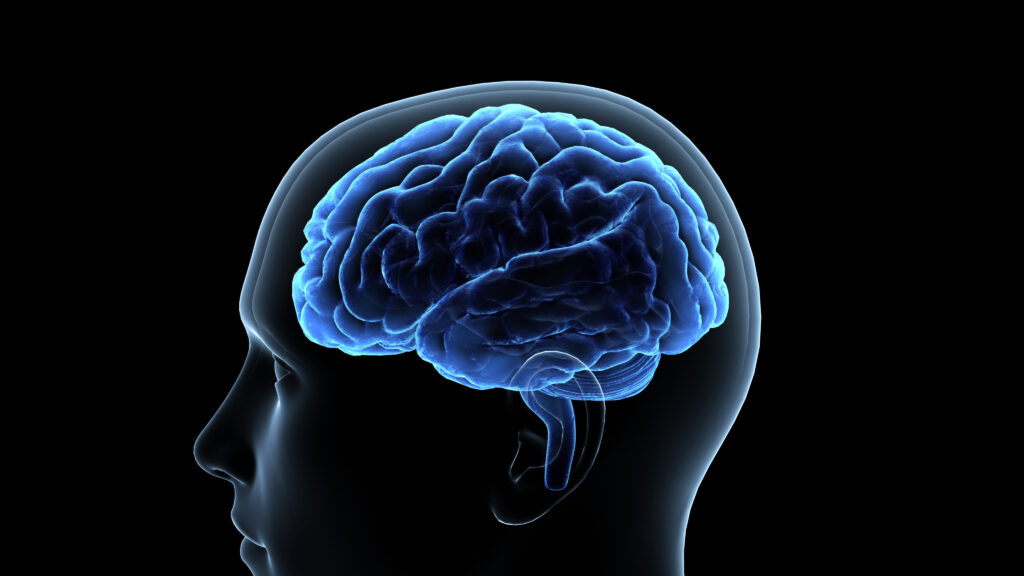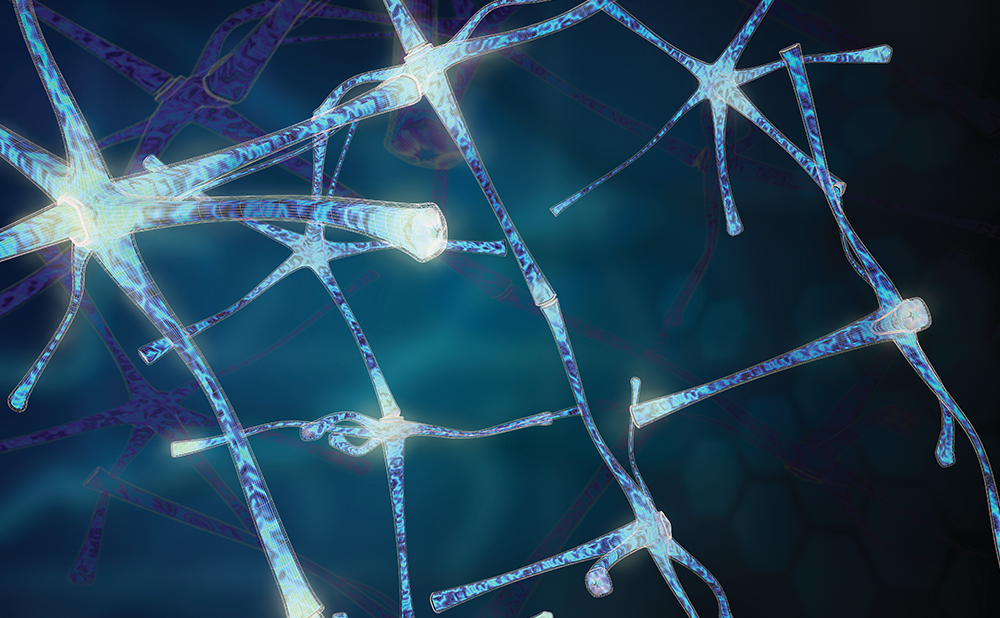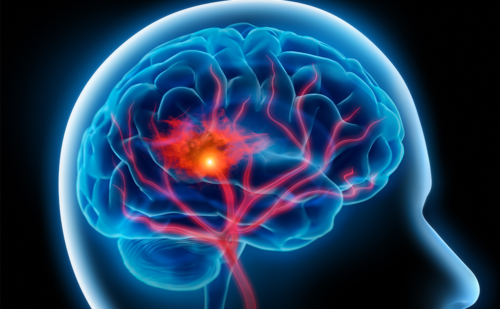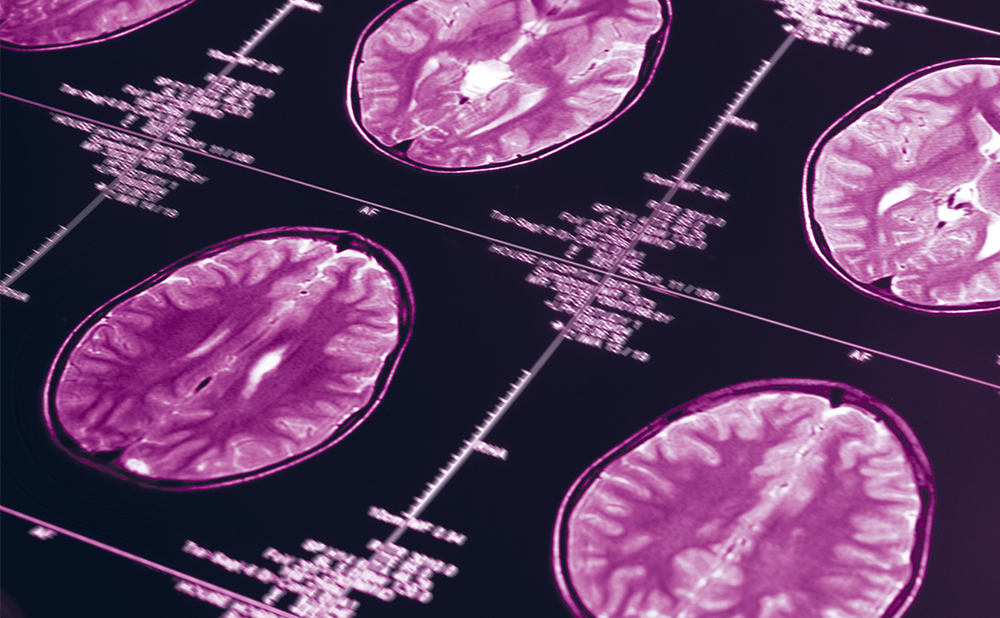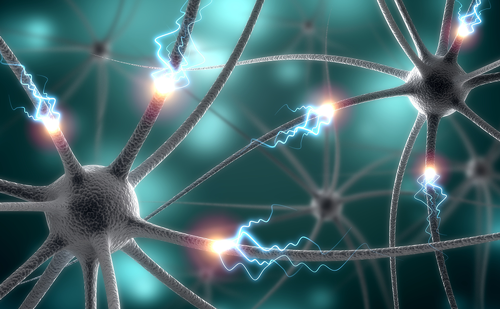Although there have been tremendous developments in the understanding of the molecular biology of Alzheimer’s disease (AD), this has not yet been translated into substantially improved therapies. There are still only two classes of licensed symptomatic treatments; however, the management of neuropsychiatric symptoms remains a huge clinical problem, and despite increasing efforts to identify novel treatment targets there are still only a handful of new potentially disease-modifying compounds that have been developed as far as phase II and III clinical trials. The main drugs discussed are summarised in Table 1.
Licensed Symptomatic Treatments for Alzheimer’s Disease
Cholinesterase Inhibitors
There is evidence from more than 30 randomised clinical trials of cholinesterase inhibitors in various stages of AD with a variety of outcome measures. In systematic meta-analyses,1–3 each of the three widely prescribed cholinesterase inhibitors (donepezil, rivastigmine, galanthamine) conferred significant benefit compared with placebo for the treatment of mild to moderate AD in the treatment of cognitive deficits. The Alzheimer’s Disease Assessment Scale for Cognition (ADAS-Cog) advantages compared with placebo were measured at 1.3–4.4 points. Due to the the large number of different methods and scales utilised, it is more difficult to quantify the improvements in activities of daily living (ADL) and global outcome across trials, but they are highly significant for all three drugs. Of note, the mean level of cognitive performance remained above baseline for six to 12 months in most studies.
Only a handful of studies have maintained a placebo-controlled design for more than six months. The initial evidence is encouraging, with placebo-controlled trials showing continued benefit over 124 and 24 months.5 The majority of trials have focused on people with mild to moderate AD, although work examining the value of cholinesterase therapy in people with more severe AD indicated significant cognitive and functional benefits associated with treatment.4,6,7 However, the trials conducted so far do not indicate in general that cholinesterase inhibitors significantly delay the onset of AD in people with mild cognitive impairment (MCI). Further work is needed to determine whether there is benefit in MCI patients carrying the apoliprotein ε48 or the butrylcholinesterase K9 genotypes.
There has been considerable debate about whether the magnitude of the symptomatic improvements is substantial enough to meaningfully influence quality of life. The absence of formal quality of life measures in the majority of clinical trials is disappointing and makes it difficult to address this concern. A survey completed by the Alzheimer’s Society in the UK, which included more than 2,000 carers of people with AD taking antidementia drugs, highlighted that the majority of people feel that the treatments did give them meaningful improvements.10 More systematic evidence comes from goal attainment scaling, which enables people to choose the outcome measures most important to them as the primary evaluation for clinical trials. Using this approach in a placebo-controlled trial of the cholinesterase inhibitor galantamine, Rockwood et al. demonstrated that important goals were significantly more likely to be achieved among people taking galantamine compared with the placebo-treated individuals.11
Recent work has considered the important matter of whether cholinesterase inhibitors or other cholinergic therapies may also have a disease-modifying impact and, in particular, whether they influence β-amyloid (Aβ) deposits in the cortex. There are several sound pieces of evidence from experimental studies showing that cholinesterase inhibitors and other cholinergic therapies reduce the accumulation of amyloid in cultured neurones and in rodent models.12,13 More recently, there has been exciting new evidence from small clinical trials utilising cerebrospinal fluid (CSF) biomarkers supporting the conclusions of the experimental work. For example, Aβ concentrations in CSF from patients were reduced two-fold after administration of the muscarinic M1 receptor agonist talsaclidine for four weeks in a double-blind placebo-controlled trial of 40 patients.14 In an another pilot clinical study comparing 27 cholinesterase-inhibitor-treated AD patients with matched untreated patients for one year, increases in CSF Aβ were prevented by both rivatigamine and tacrine treatment.15 In the first human autopsy study examining the impact of cholinesterase inhibitor therapy upon amyloid pathology in the brain, 15 dementia with Lewy body (DLB) patients treated with cholinesterase inhibitors as part of placebocontrolled trials were compared with 15 matched untreated patients. DLB patients treated with cholinesterase inhibitors had 68% less parenchymal Aβ deposition in the cerebral cortex than untreated patients – a statistically significant difference.16 Consistent with these data, a recent clinical trial demonstrated a reduction in the progression of hippocampal atrophy on magnetic resonance imaging (MRI) in cholinesterase-inhibitor-treated AD patients.17
Memantine
Memantine hydrochloride, licensed for the treatment of moderate to severe AD, is a voltage-dependent, moderate-affinity uncompetitive n-methyl-D-aspartic acid (NMDA)-receptor antagonist that mirrors the role of physiological magnesium. Memantine is the only drug licensed for the treatment of moderate to severe AD. Three randomised, placebo-controlled trials have examined memantine treatment in moderate to severe AD, with pooled data indicating a beneficial effect at six months on cognition (2.97 points on the 100-point Scale for Interpersonal Behaviour [SIB], 95% confidence interval [CI] 1.68–4.26; p<0.00001), ADL (1.27 points on the 54-point AD Cooperative Study ADL Inventory [ADCS-ADLsev], 95% CI 0.44–2.09; p=0.003) and clinical impression of change (0.28 points on the seven-point Clinician's Interview Based Impression of Change [CIBIC+], 95% CI 0.15–0.41; p<0.0001).18 The three trials focusing on mild to moderate AD show less convincing benefits.18
Treatment of Neuropsychiatric Symptoms
Agitation and Psychosis
Neuropsychiatric and behavioural symptoms occur in 90% of people with AD at some point in their illness,19 and the management of these symptoms remains a major clinical challenge. Antipsychotics are widely used as the first-line pharmacological approach. Since 1995, 18 placebo-controlled trials have examined the efficacy of atypical neuroleptics over six to 12 weeks in people with AD.19 The best evidence base is for risperidone, where there are five published trials indicating a modest but significant improvement in aggression compared with placebo, with a larger effect size at 2mg/day but limited evidence of benefit for other symptoms of agitation and psychosis.19 The efficacy of other agents has not been established from the trials conducted so far.19 Given that in the US and Europe 40–60% of people with dementia residing in care facilities are prescribed neuroleptics20 for median periods of greater than one year,21,22 an additional pivotal question is whether longer-term therapy with atypical neuroleptics confers any treatment benefit. There are only three placebo-controlled trials of a neuroleptic for the treatment of behavioural and psychiatric symptoms over a longer period than 14 weeks, neither showing significant efficacy for neuroleptic treatment.23–25
Any beneficial effects of atypical neuroleptics in people with AD must be weighed against the adverse effects, which from recent meta-analyses include parkinsonism, sedation, oedema, chest infections, stroke (odds ratio [OR] 2.5–3) and mortality (OR 1.5–1.7).19,26 Emerging evidence has also highlighted accelerated cognitive decline as an important potential consequence of neuroleptics.23,27 A meta-analysis has confirmed this observation, indicating a decline of greater than 0.7 of a point of a Mini Mental State Examination (MMSE) over six to 12 weeks in neuroleptic-treated patients compared with those treated with placebo. Such a difference appears modest, but represents a doubling in the expected rate of cognitive deterioration over this period.27
In the face of this evidence, it is difficult to disagree with the conclusions of the Clinical Antipsychotic Trials in Intervention Effectiveness (CATIE) study, suggesting that the modest benefits of treatment do not outweigh the risks other than in exceptional circumstances and following a fully informed discussion of the potential risks.
Other candidate pharmacological treatments include the anticonvulsants carbamazepine and sodium valproate, and the antidepressants trazadone and citalopram. Of these, the best evidence is for carbamazepine, which has been shown to be significantly better than placebo for the treatment of agitation in several small placebo-controlled trials,28 although there is limited information pertaining to adverse events and long-term safety in people with dementia for any of these agents. A recent Cochrane review concluded that sodium valproate was effective only at higher doses than those associated with unacceptable side effects.29 Open and cross-over trials have indicated some potential benefits of trazadone in treating agitation,30 although the results of double-blind, placebo-controlled trials have been disappointing.31 Citalopram was associated with the improvement of a number of behavioural and psychiatric symptoms in a double-blind, placebo-controlled trial,32 and a recent small double-blind study indicated equivalent efficacy to risperidone.33
An early systematic review and meta-analysis34 concluded that cholinesterase inhibitors have a modest beneficial effect in the treatment of neuropsychiatric and behavioural symptoms; this was supported by the finding of subsequent Cochrane reviews of the individual cholinesterase inhibitors for the treatment of AD.1–3 However, it should be noted that neuropsychiatric indications were evaluated only in a subset of studies, changes in individual symptoms were not evaluated, the majority of participants did not have clinically significant neuropsychiatric and behavioural symptoms and the treatment benefits compared with placebo were identified after six months of therapy. Three recent studies examining people with significant neuropsychiatric and behavioural symptoms have produced contradictory results. In a small randomised trial focusing on people with mild neuropsychiatric symptoms in the context of AD, Holmes et al.35 reported a significant five-point advantage of donepezil over placebo on the Neuropsychiatric Inventory (NPI). In a slightly larger study of 93 patients, Ballard et al.,23 focusing specifically on AD patients with clinically significant agitation, reported a non-significant two-point advantage for rivastigmine compared with placebo over 26 weeks. A re-analysis of the data from Feldman and colleagues offers a further important insight, suggesting improvements in mood symptoms and apathy, but not agitation, with donepzeil therapy.36
In addition, a recent large, placebo-controlled trial in AD patients with clinically significant agitation indicated limited benefits in the treatment of agitation after 12 weeks, although cognition did improve.7 This literature is difficult to collate, but it is likely that cholinesterase inhibitors are not going to be a useful short-term treatment for neuropsychiatric and behavioural symptoms. Over six months or longer, cholinesterase therapy may well confer benefit, and may reduce the need for other psychotropic medication.
Emerging evidence indicates that memantine may also be helpful in treating neuropsychiatric symptoms, particularly agitation and aggression,37–39 with a recent Cochrane review18 suggesting an effect size in the treatment of neuropsychiatric symptoms similar to that seen for atypical antipsychotics.19 This is a potentially exciting development, especially as the largest improvement appears to be in symptoms of agitation.39 However, these data are based on retrospective post hoc analyses, and the level of agitation in study participants was modest. Prospective studies in people with more severe clinically significant agitation are required to determine the place of memantine for the treatment of these symptoms. Given the excellent safety profile of memantine there is, however, a strong case for using memantine as a first-line pharmacological treatment for agitation, given the uncertainties and risks of other treatment.
Depression
Although in clinical practice most clinicians would use antidepressant drugs as the first-choice therapy for more severe depression, the evidence base from randomised clinical trials is far from clear. A Cochrane review40 identified seven randomised, placebo-controlled trials that met the inclusion criteria, the majority of which did not demonstrate a significant advantage over placebo. The best of the trials41 evaluated sertraline in 44 participants from a single university outpatient clinic who were categorised into a 12-week double-blind, placebo-controlled trial of sertraline, which is a specific serotonin re-uptake inhibitor (SSRI). An effect size of 0.51 was reported, with a mean change of -10.5 on the Hamilton depression scale in the intervention group, -4.5 in the control group and – 9.9 and -3.2, respectively, in the Cornell Scale for Depression in Dementia. Most of the trials completed so far had low entry thresholds for depression and did not stipulate a minimum required duration. Hence, many people with mild spontaneously recovering depression may have been included, which may have reduced the apparent effect size. In addition, all of the studies to date were of short duration, and none tackled the crucial matter of whether there is a longer-term benefit associated with antidepressant treatment. Better designed trials are urgently needed to investigate the role of antidepressants in more severe and more sustained depression among people with dementia; several are already in progress.
The Next Generation of Therapies
The major focus of new drug development has been directed towards ‘anti-amyloid’ therapies, using a variety of approaches including enzymes involved in the processing of amyloid precursor protein (APP), the aggregation of amyloid and the clearance of amyloid from the brain. Various immunotherapy approaches have attracted the greatest interest, with evidence of clearance of cortical amyloid deposits in transgenic mice42 and amyloid plaques in people with AD.43 However, these approaches must be considered in the context of concerns regarding encephalitis as a potential major adverse event in a minority of individuals44 and difficult-to-interpret neuroimaging studies indicating the possibility of accelerated atrophy.45 Recent four-year follow-up data from the original active immunisation study suggest good clinical stabilisation in people who generated antibodies, and animal studies with a modified active vaccine indicate a reduced risk of encaphilitis.46,47 Active and passive immunotherapy studies are now entering phase III clinical trials, with a number of other compounds in development. A major school of thought has suggested that amyloid oligmers48 may be a more important target than plaques containing amyloid aggregates, and it is likely that more specific immunotherapy approaches targeting these oligmers will be developed. Also in phase III clinical trials is tarenflurbil, which is a γ-secretase inhibitor influencing the cleavage of Aβ protein precursor (APP).49
Although far less studied than amyloid strategies, neurofibrillary tangles and the phosphorylation of tau are also major treatment targets. Cell culture and animal studies indicate that sodium valproate, lithium and some tetracyclines may reduce the phosphorylation of tau,50,51 possibly through the action of protein kinases such as GSK3, and several clinical trials are ongoing. Clinico-pathological studies also indicate that statins may be associated with a reduced burden of neurofibrillary tangles,52 but initial clinical trials have been disappointing.53
An enormous array of other treatment strategies have been advocated and are being investigated, including neuroprotection, growth factors and regenerative approaches. Perhaps stem cell therapies have attracted the greatest interest, with recent reports suggesting that implantation of neural stem cells may improve cognition in transgenic mice,54 although this is far more challenging in AD than in Parkinson’s disease and there are considerable practical and scientific barriers to overcome before this becomes a feasible treatment strategy for people with AD. As an alternative, increasing evidence highlights the potential utility of promoting endogenous neurogenesis as a potential treatment strategy.55,56 ■


